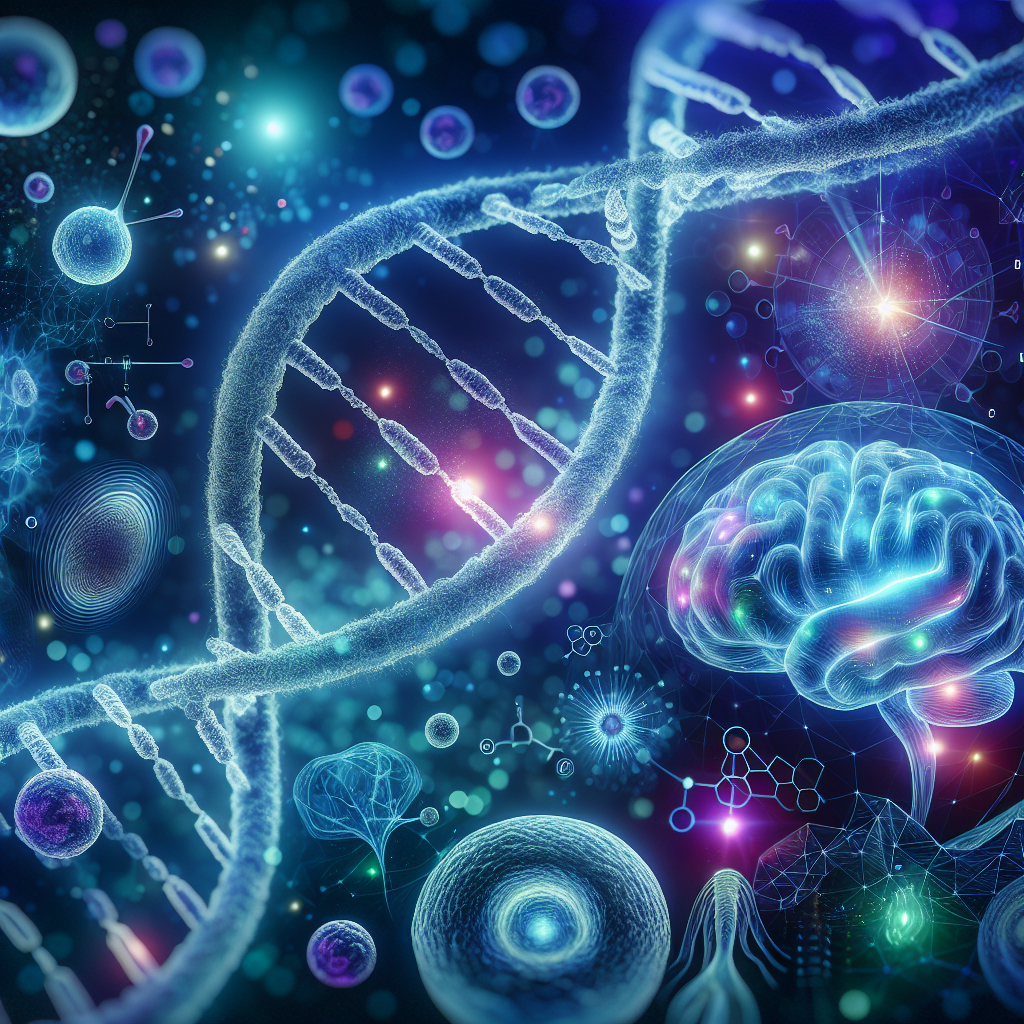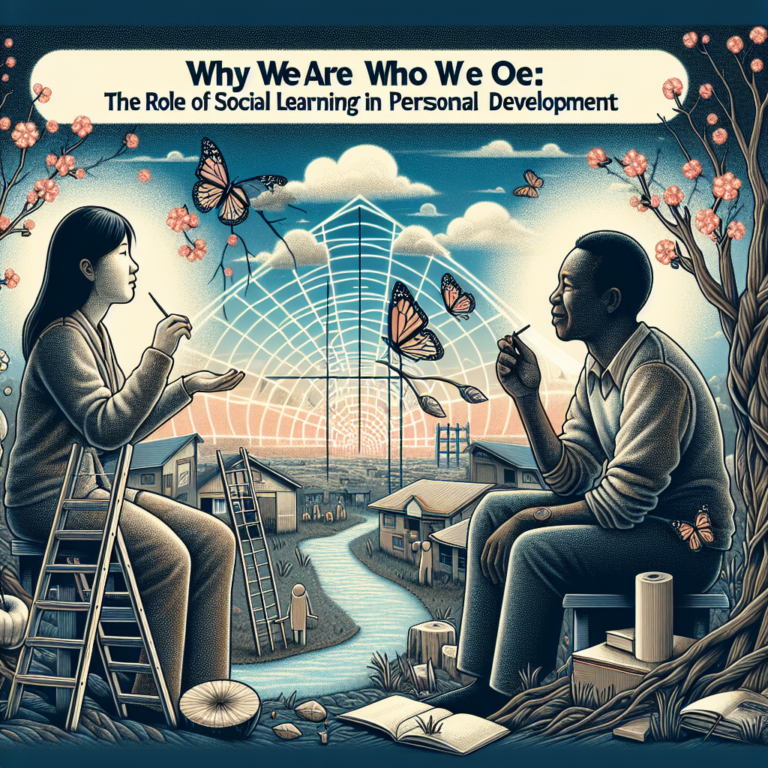
Introduction
Have you ever wondered why you instinctively react to certain situations or why specific traits run in families? The connection between our genetic makeup and behavior is a profound and fascinating subject. Today, as we delve into Unraveling the Genetic Code: How Biology Shapes Our Behavior, you’ll discover how our DNA influences not only who we are but also how we respond to the world around us. In an era of rapid scientific advancement, understanding these biological underpinnings is essential not merely for academics but for everyday life, guiding our understanding of morality, relationships, and even our dreams.
The Genetic Blueprint and Behavior
Understanding Genes and Their Functions
Genes are the basic units of heredity, comprised of DNA. They encode instructions for building proteins, which perform many functions in our bodies, including influencing our physical, emotional, and psychological traits. To grasp Unraveling the Genetic Code: How Biology Shapes Our Behavior, it’s imperative to understand how these microscopic units dictate our responses to stimuli and shape our interactions.
| Gene | Function | Behavioral Influence |
|---|---|---|
| 5-HTTLPR | Serotonin transporter gene | Mood regulation, anxiety |
| DRD4 | Dopamine receptor gene | Novelty-seeking, risk-taking behavior |
| MAOA | Monoamine oxidase A gene | Aggression, impulsivity |
Case Study: The DRD4 Gene and Novelty-Seeking
One of the most notable examples is the DRD4 gene, associated with dopamine receptors—responsible for our pleasure-seeking behaviors. Studies show that individuals with a particular variant of this gene are more likely to engage in novelty-seeking and risk-taking, highlighting a biological basis for adventurousness.
Nature vs. Nurture: The Age-Old Dilemma
The age-old debate of nature versus nurture is central to understanding Unraveling the Genetic Code: How Biology Shapes Our Behavior. While genes provide the potential for certain behaviors, environmental factors play a crucial role in how these inclinations manifest. For instance, a child may inherit a genetic predisposition to anxiety but might flourish in a supportive, nurturing environment.
The Role of Epigenetics
Epigenetics has emerged as a groundbreaking field that studies how environmental factors influence gene expression without altering the DNA sequence itself. This means our experiences—stress, nutrition, and education—can turn certain genes on or off, showcasing the dynamic interplay between biology and environment.
Case Study: The Effects of Childhood Trauma
A poignant study on children exposed to trauma found that adverse experiences could alter the epigenetic markers associated with stress response. This research underscores a fundamental truth in Unraveling the Genetic Code: How Biology Shapes Our Behavior: while our genes offer a blueprint, life’s pathways can modify its structure.
Behavioral Genetics: A Deep Dive
The Genetics of Personality
Research in behavioral genetics has unveiled links between specific genes and personality traits. Unraveling the Genetic Code: How Biology Shapes Our Behavior encompasses various facets of personality, influenced by multiple genetic components.
| Personality Trait | Associated Genes | Influence on Behavior |
|---|---|---|
| Extraversion | 5-HTTLPR, MAOA | Higher social engagement and enthusiasm |
| Neuroticism | COMT, 5-HTTLPR | Heightened sensitivity to stress and negative emotions |
| Agreeableness | DRD2, 5-HTTLPR | Increased empathy and cooperative behavior |
Case Study: Extraversion and Social Skills
Individuals with certain variants of the 5-HTTLPR gene tend to score higher on extraversion scales, which can influence their social skills and relationships. Those with this predisposition often find themselves thriving in social settings, showcasing how genetics can mold our interpersonal dynamics.
The Biology of Aggression
Aggression is another area where genetics play a distinct role. The interplay of multiple genes and environmental triggers is critical in understanding violent behavior. For instance, the MAOA gene, often referred to as the "warrior gene," has been linked to increased aggression in some individuals when coupled with adverse environmental factors.
Case Study: The Warrior Gene
A landmark study found that men with a specific variant of the MAOA gene were more likely to exhibit violent behavior if they had experienced childhood abuse. It illustrates the idea that while genetics can predispose individuals to aggression, environmental experiences play a pivotal role in expressing these traits.
Animal Models in Behavior Study
Insights from the Animal Kingdom
Unraveling the Genetic Code: How Biology Shapes Our Behavior extends beyond humans. Animal models, particularly in rodents, have provided invaluable insights into behavioral genetics. Framing their genetic predispositions helps researchers identify biological underpinnings of behaviors that resemble human traits.
| Animal Model | Key Findings | Behavioral Insight |
|---|---|---|
| Mice | Gene knockout studies reveal aggression patterns | Genetic basis for aggression and fear |
| Fruit Flies | Easy manipulation of genes enables behavioral study | Link between genetics, learning, and memory |
Case Study: Genetic Manipulation in Mice
In one study, researchers manipulated specific genes in mice and observed changes in behavior, particularly in aggression and social interaction. These experiments provided a clear connection between genetic alteration and behavioral outcomes, supporting the idea that Unraveling the Genetic Code: How Biology Shapes Our Behavior is not exclusive to humans but is evident across species.
The Human Genome Project and Behavioral Research
Mapping the Genetic Terrain
Launched in 1990, The Human Genome Project aimed to identify all human genes and their functions. This monumental effort paved the way for linking genetic variations to behavioral outcomes.
Behavioral Phenotyping
By analyzing genetic data alongside behavioral traits, researchers can spot links that illuminate how genes affect behavior. This merging of genetics and psychology demonstrates the profound impact our biology has on our everyday actions.
Case Study: Genetic Variation and Social Behaviors
Research analyzing the genetic markers of social behaviors among diverse populations has shown varying expressions of genes related to empathy and cooperation. These findings highlight how societal contexts intertwine with biological factors, reiterating that Unraveling the Genetic Code: How Biology Shapes Our Behavior is a complex web of interactions.
Ethical Considerations and Future Directions
Implications of Genetic Research
As we continue to decipher the genetic code that influences behavior, ethical considerations emerge. Issues surrounding genetic testing, privacy, and discrimination arise, calling for responsible practices in genetic research and application.
The Road Ahead: Personalized Approaches
The future of understanding behavior through a genetic lens offers exciting prospects. Personalized medicine, which tailors interventions based on genetic profiles, may revolutionize mental health care and behavioral therapies, aligning precisely with individual needs and dispositions.
Motivational Takeaway
In our exploration of Unraveling the Genetic Code: How Biology Shapes Our Behavior, we find a blend of scientific inquiry and ethical responsibility. Understanding these links empowers us to navigate our lives with greater awareness, fostering empathy and compassion toward ourselves and others.
Conclusion
As we wrap up this journey through the intricacies of genetics and behavior, remember that while our biology shapes our responses and instincts, it’s not the sole determinant of our paths. The interplay of genes, environment, and personal experiences weaves a rich tapestry of human behavior. Embrace the knowledge that understanding this can enhance our relationships and expand our capacity for understanding.
Unraveling the Genetic Code: How Biology Shapes Our Behavior is not just a tale of scientific exploration; it’s an invitation to cultivate mindfulness in our choices, shaping a future directed by awareness and understanding.
FAQs
1. How do genes influence behavior?
Genes encode traits that can affect behaviors, such as personality, emotional responses, and risk-tolerance. However, environmental factors also play a critical role.
2. What is epigenetics?
Epigenetics is the study of how external influences can change gene expression without altering the DNA sequence, impacting behavior and traits.
3. Are genes the only factor in behavior?
No, while genes provide a foundation, environmental factors, experiences, and social context significantly influence behaviors.
4. Can I change my behavior if I have a genetic predisposition?
Absolutely! Awareness, education, and therapy can help individuals manage and alter behaviors influenced by genetic factors.
5. What are the ethical concerns related to genetic research?
Ethical concerns include privacy issues, potential for discrimination, and the implications of genetic determinism, particularly in behavioral contexts.
In our quest to understand Unraveling the Genetic Code: How Biology Shapes Our Behavior, we should aim for a future that merges awareness with empathy, taking a holistic approach to health and interpersonal connections.















